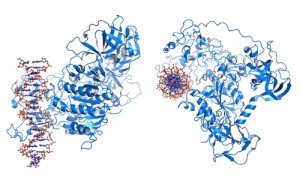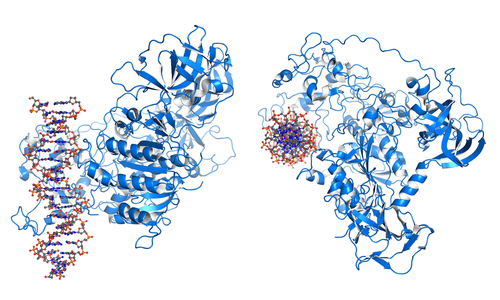 Epigenetic changes in the DNA of patients with Crohn’s disease may provide important insight into how the disease develops depending on interactions between genetics and environmental factors (such as diet and gut bacteria). Ultimately, these findings could contribute to screening people with Crohn’s and developing new treatments to fight the illness. These changes were discovered in a new study, recently published in the official journal of the Crohn’s and Colitis Foundation of America, Inflammatory Bowel Diseases.
Epigenetic changes in the DNA of patients with Crohn’s disease may provide important insight into how the disease develops depending on interactions between genetics and environmental factors (such as diet and gut bacteria). Ultimately, these findings could contribute to screening people with Crohn’s and developing new treatments to fight the illness. These changes were discovered in a new study, recently published in the official journal of the Crohn’s and Colitis Foundation of America, Inflammatory Bowel Diseases.
In their study, entitled, “Two-stage Genome-wide Methylation Profiling in Childhood-onset Crohn’s Disease Implicates Epigenetic Alterations at the VMP1/MIR21 and HLA Loci,” researchers analyzed children with Crohn’s disease in Edinburgh, Aberdeen, and Glasgow, and applied the Illumina 450K platform to assess epigenome-wide methylation profiles in circulating leukocyte DNA.
The team identified 65 individual CpG sites (where cytosine (C) lies next to guanine (G) in the DNA sequence) with methylation alterations that had epigenome-wide significance. In addition, they found 19 differently methylated regions displaying unidirectional methylation change. Researchers also found a highly significant enrichment of methylation changes around this genome-wide association study, particularly the HLA region and MIR21.
These findings will ultimately allow the development of a DNA test that could determine individuals who are at a higher risk of eventually suffering from Crohn’s. Having demonstrated significant and replicable differences in DNA methylation in Crohn’s disease, defining the disease-associated epigenome, the team hopes these findings will help identify new alternative treatments for this disease. “Our study gives the strongest evidence yet that epigenetic changes are involved in Crohn’s disease,” said Professor Jack Satsangi, from the Centre for Genomic and Experimental Medicine at the University of Edinburgh. “The findings provide a potential mechanism whereby diet or other environmental factors may modify genetic material to cause Crohn’s disease. We hope the findings will help to identify much-needed treatment opportunities for this debilitating condition.”

